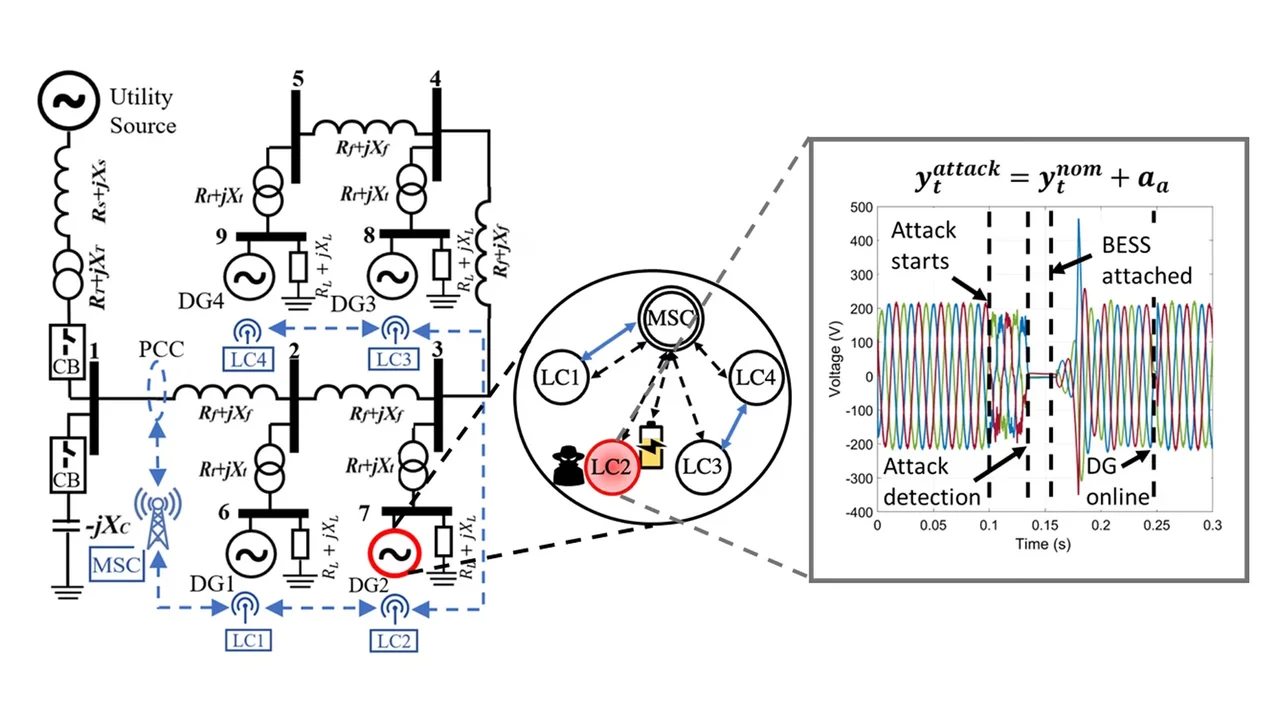
Mitigation of Cyberattacks through Battery Storage for Stable Microgrid Operation
About
Mitigation of Cyberattacks through Battery Storage for Stable Microgrid Operation: Power grids are undergoing radical changes to meet energy demands, comply with environmental regulations, and improve the quality of service and system resilience. The inclusion of information and communication technologies and embedded devices enables the remote coordination, and control of microgrids (MG) and has transformed traditional power systems into cyber-physical systems. The security of MG-enabled power systems should not be overlooked given the plethora of cyberattacks against this pillar of critical infrastructure (e.g., Stuxnet, Blackenergy3, Crashoverride, etc.). Effective strategies to detect and isolate malicious incidents in MG-integrated power systems are of cardinal importance. In this work, in collaboration with Fei Teng, Imperial College London, UK, George C. Konstantopoulos, University of Patras, Greece, and Andreas T. Procopiou, Watts Battery Corp., Palo Alto, CA, USA, we present a mitigation methodology that leverages battery energy storage system (BESS) resources to mitigate cyberattacks. The control of MG agents is achieved in a distributed fashion, and once a misbehaving agent is detected, the MG’s mode supervisory controller isolates the compromised agent and initiates self-healing procedures to support the power demand and restore the compromised agent. To validate our methodology, we performed simulations on a modified version of the Canadian urban benchmark distribution model. Our results demonstrate the practicality of the proposed attack mitigation strategy and how grid resilience can be improved using BESS synergies.
Postprint available: KAUST Repository
Video presentation available: YouTube

